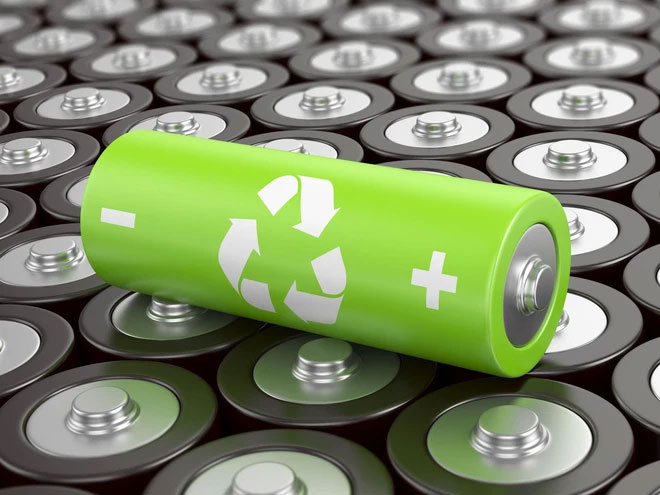Ironically, the process of mining materials generates many toxic byproducts that directly fuel the transition from fossil fuel-powered vehicles to electric vehicles. If we can recycle the materials used to make batteries, electric vehicle technology will become even greener; we will eliminate tons of waste occupying significant land area while also reducing the energy and raw materials used in the battery production process.
However, as the electric vehicle battery recycling industry is just beginning to take shape, car manufacturers are not very enthusiastic about using recycled materials. “Generally, there is a bias that recycled materials are not as good as new raw materials,” says Yan Wang, a professor of mechanical engineering at Worcester Polytechnic Institute. “Battery companies are still hesitant to produce batteries from recycled materials.”

Batteries using recycled cathodes are even more efficient than those made from new materials.
In a recent study, Professor Wang and his team from the United States Advanced Battery Consortium (USABC), along with battery manufacturer A123 Systems, have alleviated concerns within the energy storage device manufacturing sector. The research results published in the journal Joule show that batteries using recycled cathodes are still effective, and even outperform batteries made from new materials.
The team of scientists experimented with recycled NMC111 cathodes, the most common type of cathode made from nickel, manganese, and cobalt. The electrical devices were produced using a new recycling technology (patented) from Battery Resources, a startup co-founded by Wang. Currently, Battery Resources has begun commercialization.
By examining the structure of the recycled material, the research team found that more voids appeared, allowing more pathways for lithium ions to flow back and forth. As a result, the energy density of batteries made from recycled materials is similar to that of mainstream batteries, and the cycle life of recycled batteries is even 53% higher.
Although not yet tested directly in vehicles, the recycled batteries used in the study have undergone tests at a scale comparable to industrial levels. The standardized production line shows that the batteries meet the necessary conditions to be assembled into electric vehicles. According to Professor Wang, this is evidence that cathodes made from recycled materials can fully replace new materials.

The process of mining rare earth elements used in batteries significantly impacts the environment.
Electric vehicle batteries are complex and require a recycling process that is not easy: the process will need a lot of energy, or we will have to crush the batteries and pour the products into acid. Battery recycling companies will use the aforementioned methods to separate the components of the batteries and sell them back to battery manufacturing businesses.
But according to Professor Wang, the real value of electric vehicle batteries lies in the cathode. The materials used for the cathode, which are a combination of nickel, manganese, and cobalt, consist of particles with specific sizes and structures. Battery Resources technology can extract materials ready for the cathode production process. This makes Professor Wang’s startup much more efficient than methods that crush the entire battery system.
Battery Resources has begun selling small batches of materials to several battery manufacturing companies. They plan to open their first commercial-scale factory in 2022, with the capacity to process 10,000 tons of batteries. In September, Battery Resources raised $70 million, providing ample financial resources that will allow them to open two more recycling facilities in Europe next year.


















































